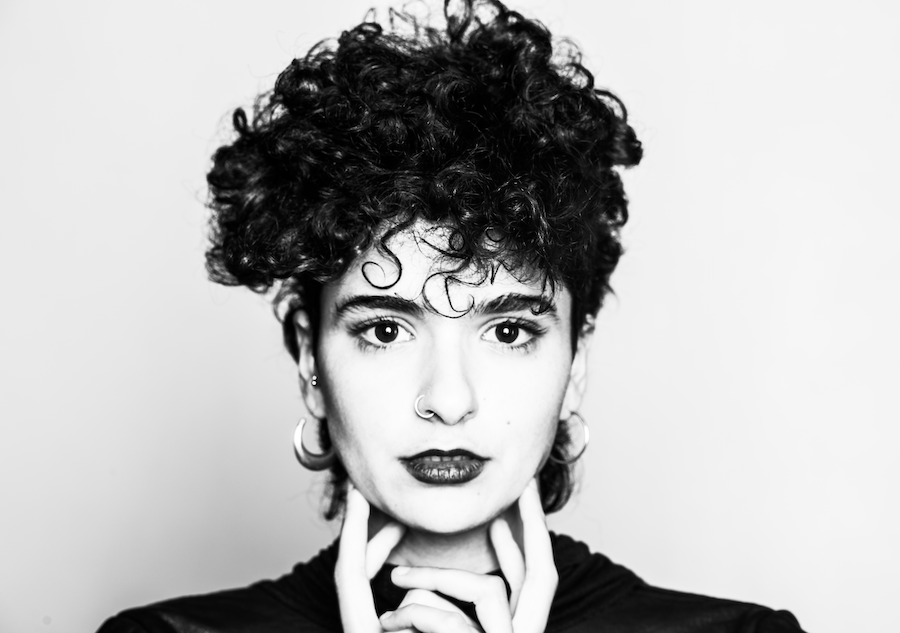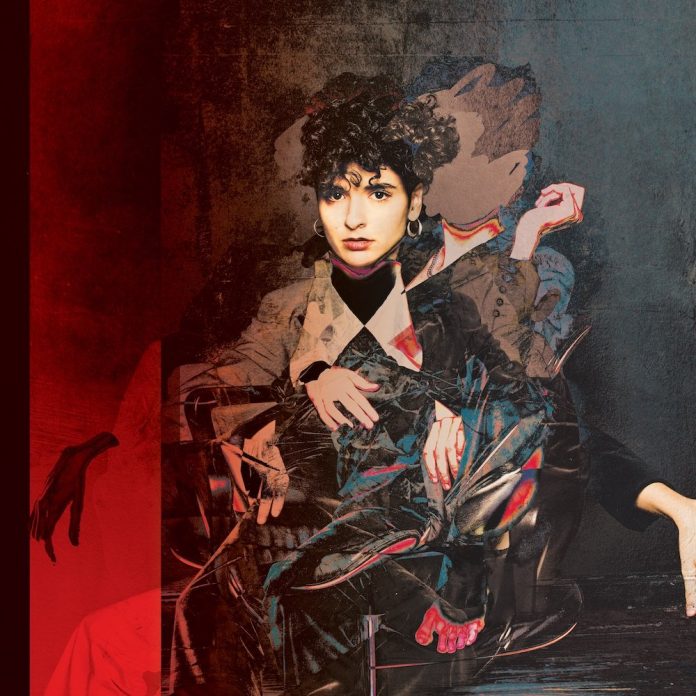AMSTERDAM: In May 2019, life was looking good for Palestinian singer-songwriter Rasha Nahas. She had begun to establish herself in Berlin — having moved there from her hometown of Haifa in 2017; her debut album — wrapped in 2018 — was just weeks away from being released; and she had a prospective tour of the Middle East and Europe lined up.
“I feel like a lot of exciting things are happening and hopefully the album will bring more,” she told me then. “I’m not in a hurry, but I’m going full-power with all of my will and passion.”
Fast-forward to today and that debut album is still just weeks away from release. Not long after we spoke last year, Nahas began to experience pain in her wrists and hands. It quickly became serious enough that she went to see a doctor who diagnosed her with repetitive strain injury.

“It was really hardcore,” she says. “Both my hands and wrists had very, very bad inflammation. I couldn’t type emails or hold my phone or carry groceries and stuff. It was basically from overplaying. It had been a very busy time with shows and traveling, and a lot of stress. That was good, in some ways, because it meant things were happening for me, but the mental stress also wasn’t good for my body. I just had to stop everything, take a break and focus on getting better.”
Having psyched herself up for the release of her album, the necessary postponement — and cancellation of her tour plans — was something of a comedown.
“Everything was a big frustration,” she says. “And I couldn’t really let that energy out in music, because I wasn’t able to (play).”
That last part, especially, was a huge blow to someone for whom music has been “a place of escape and expression and dealing with things and understanding myself” since her early teens and has become the thing from which she makes her living — an impressive feat for any artist, but particularly an independent musician from the Middle East.

Nahas first picked up a guitar when she was a kid. It actually belonged to her sister, who “took a few lessons then stopped.”
“I would tune it in very weird ways and strum it and sing out of tune,” she says. “Then I decided to study guitar. The only available option that my parents liked was classical music. So for nine years I did classical guitar and theory. I wanted to drop it (often), but I’m glad I didn’t.”
Music was popular in the Nahas household — from classic Arab artists including Fayrouz (“My mother’s a big fan”) to Western artists. Nahas chose to listen mostly to the latter. “We had a massive collection of CDs in the car and every Saturday we’d drive to the Galilee with the windows open and very fresh air and listen to John Lennon. That’s my main memory of music from my childhood,” she says. As a teenager she branched out into hard rock, pop, jazz and more. Oh, and Avril Lavigne (“That’s a bit embarrassing now,” she admits).

She estimates she wrote her first original song around the age of 15. “It probably sounded like a normal indie-rock song, but I think the (lyrical) content was quite different,” she says. “It was about life as a Palestinian girl understanding her identity, and asking questions — about the political situation too. Looking at it now, I think, ‘Woah! That’s what I was dealing with at the age of 15?’”
It took a few years before she felt she was developing her own identity as an artist, though. She played her first gig as she finished high school, aged 18, by which time she had about an hour’s worth of original material.
It makes sense that Nahas had classical training and listened to a wide variety of genres growing up — and that she composes music for the theater professionally. Her songs, and particularly her vocal delivery, have a definite theatrical vibe, and there are hints of several influences — pop, indie rock, jazz, rockabilly, surrealism, punk, spoken-word, and more. The result is something that seems entirely organic and entirely honest. It’s not necessarily easily accessible, but it’s certainly some of the most interesting work you’ll hear from a contemporary Middle Eastern artist, at least in the English language.

The two singles released from the album so far — “The Clown” and title track “Desert” — are good examples; both showcasing her distinctive style. The former was written a month after Nahas moved to Berlin, aged 21 (because “I just needed to be away, make music and take time to just be and understand things”). “It came from a few days of thoughts that were gathering and piling up — about being away from home, about artists getting on stage and getting labeled as Palestinian or as Israeli, about the political situation that never really leaves you.”
The latter, released in November, was written around the same time. “It’s a very personal song talking about searching and the things that are changing around us,” Nahas explains. “In the video (shot in Haifa), we played a lot with metaphors and images — we have kids with guns, we have a dancer crucified on an olive tree to symbolize the ties to the land. We have an old, abandoned building in Haifa contrasted with the big glass buildings to ask ourselves where our identity — as Palestinian 48ers — fits between tradition and modern colonialism.”

The search for identity is a central theme of Nahas’ debut album, which will finally see the light of day on January 29. “It was very influenced by the relocation from Palestine to Germany,” she says. “So it deals with questions of identity and of what our responsibility to our identity is. I come from this place that has a certain political weight, traditionally. So how do I deal with that weight? How do I sing about it? Who am I in it?”
The end to the record’s long delay will doubtless come as a huge relief to Nahas, after what she describes as “one of the heaviest years for me.” Her almost-complete recovery from injury all but coincided with the start of the COVID-19 pandemic, and the year also included the death of a close friend — one of the dancers in the “Desert” video.

“That challenged my relationship with the (record). He was part of the creation, in a way. And the release was postponed because of the injury and the pandemic. I wished it had been finished and that he could have seen it, because he really put everything into it. So it just added another layer to everything.”
That heavy year hasn’t been entirely without positives though, she stresses. “Even though it’s been very unsettling, with my injury and the pandemic, it did ground something in me. It forced me to look inward more, but also to look at what’s around me and appreciate it and grow from it.”

Given the years between the album’s completion and release, I wonder if Nahas still feels as connected to the work. Her answer is a definite yes.
“It captures a period in my life that I needed to capture and I’m really happy I did that. The songs came from a very honest place. That’s the most important thing — I feel like that doesn’t get old,” she says. “ So, it doesn’t matter when it comes out, because it’s real and it’s truthful — and I’m sure that will be reflected in the interaction with the people who are going to listen to it.”


